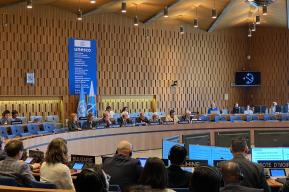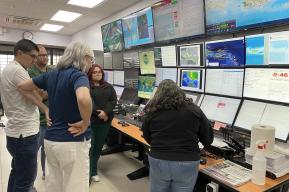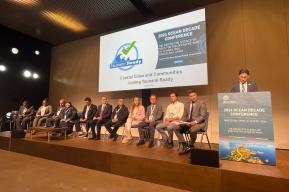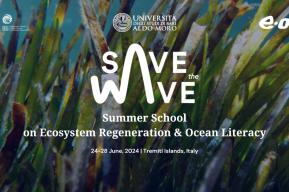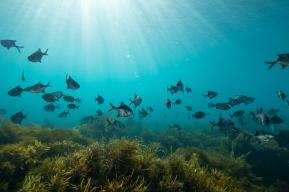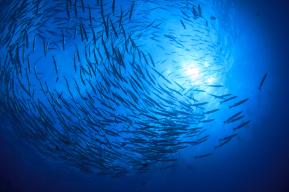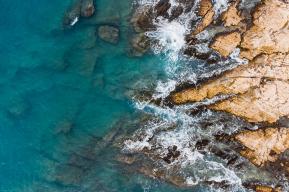News
Strengthening capacities of MSP in Ghana to accelerate the development of its Sustainable Ocean Plan
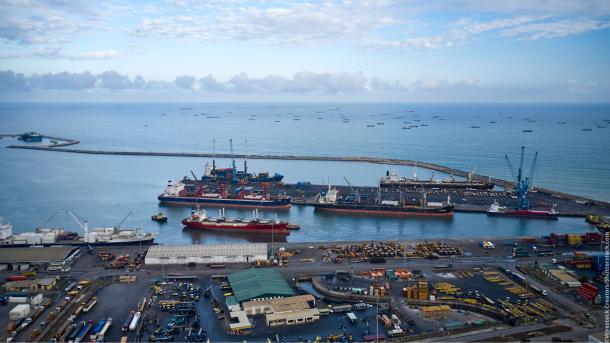
The two-day training was co-organised by the SDGs Advisory Unit in the Office of the President in Ghana and the CSIR Water Research Institute, the national focal points for the MSPglobal Initiative and the Intergovernmental Oceanographic Commission of UNESCO (IOC-UNESCO), respectively.
Ghana aims to strengthen national MSP processes and with it accelerate the development of its Sustainable Ocean Plan. That is why the support by IOC-UNESCO also results from its membership in the Ocean Action 2030 panel within the framework of the High Level Panel for a Sustainable Ocean Economy (Ocean Panel). Support for the training was also provided by the UNESCO Office in Accra.
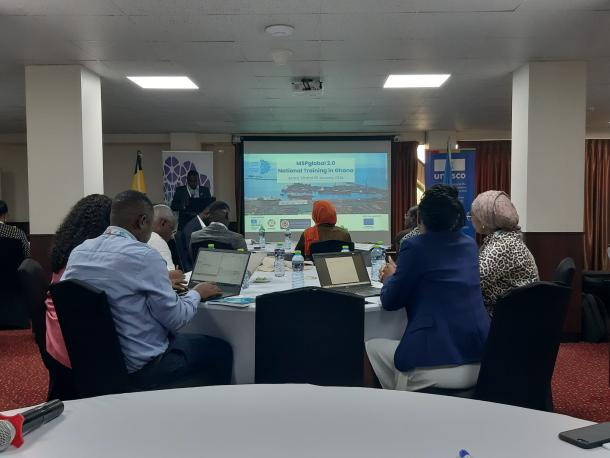
Pilot project: Gulf of Guinea
The event kicked off a series of National Trainings which will be carried out within the context of the MSPglobal 2.0 pilot project in the Gulf of Guinea in the four beneficiary countries Ghana, Togo, Benin, and Côte d’Ivoire. The training is based on the six MSP phases defined by the MSPglobal Guide including sessions on the inclusive and participatory approach of MSP, data for MSP, transboundary cooperation, Sustainable Blue Economy, climate-smart MSP, and marine protection. In addition, the MSP Challenge board game is played as an essential hands-on part of all MSPglobal trainings to teach the complex relations between marine-related activities and ecosystem-based MSP.
Panel on MSP-related initiatives in Ghana
The highlight of the training in Ghana was the panel moderated by Mr. Felix Addo-Yobo, Deputy Director of the SDGs Advisory Unit at the Office of the President. On stage was Mr. Ebenezer Appah-Sampong, the Coordinator for Ghana’s Sustainable Ocean Plan, who gave an overview of the Mami Wata pilot and noted that the baseline assessment undertaken by the project will support MSP in Ghana.
Also part of the panel was Mr. Ebenezer Nstiful who noted that for LUSPA there are existing legislative remits and previous experiences to lead MSP processes in Ghana thanks to the Mami WATA project. Still, he comments that one of the key challenges LUSPA faces is the limited in-house human resources and technical capacity to undertake MSP. Lastly, also on the panel was Mr. Kofi Agbogah, Director of Hen Mpoano, who highlighted the relevance of marine data and the evidence to undertake MSP, especially for the central and eastern coastal areas of Ghana.
Lastly, Overall, the first MSPglobal 2.0 National Training of the year turned out successful and will serve as a good foundation to accelerate the sustainability of the coastal and marine environments of the country. Future activities after this event include a workshop to develop a national action plan to advance MSP.


